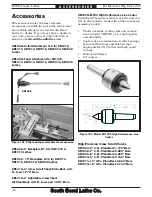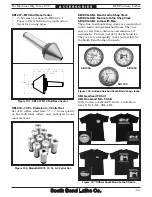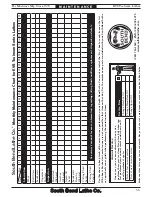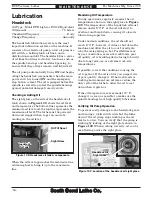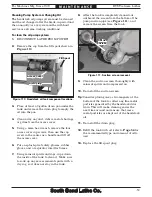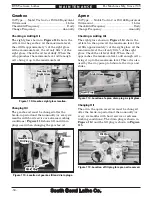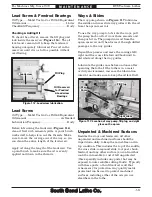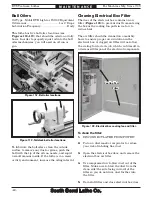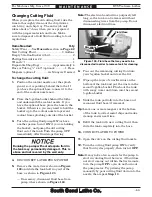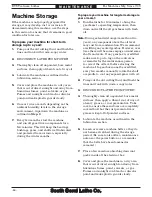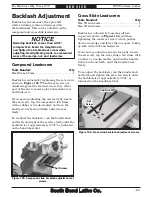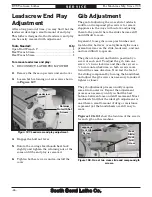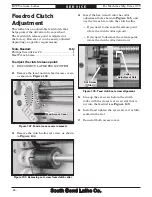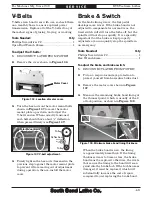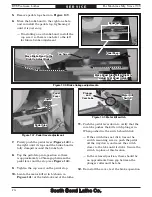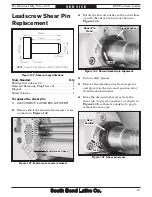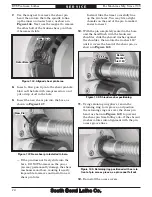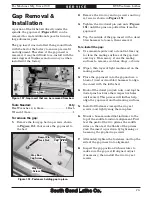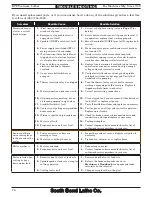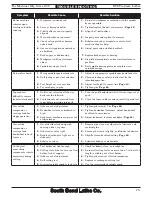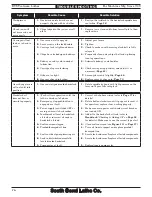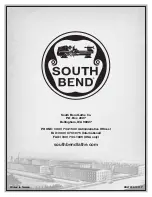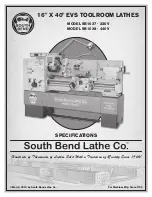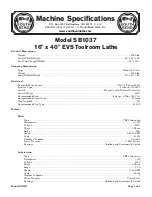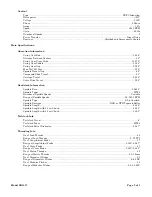
-66-
For Machines Mfg. Since 7/09
EVS Toolroom Lathes
S E R V I C E
After a long period of time, you may find that the
leadscrew develops a small amount of end play.
This lathe is designed so that leadscrew end play
can be easily removed with adjustment.
Tools Needed:
Qty
Open End Wrench 1" ............................................ 1
Hex Wrench 3mm ................................................. 1
Hex Wrench 5mm ................................................ 1
To remove leadscrew end play:
1.
DISCONNECT LATHE FROM POWER!
2.
Remove the three cap screws and end cover.
3.
Loosen both retaining nut set screws shown
in
Figure 127
.
Leadscrew End Play
Adjustment
Gib Adjustment
The goal of adjusting the cross slide, tailstock,
saddle, and compound gib screws is to remove
sloppiness in the ways without over-adjusting
them to the point where the slides become stiff
and difficult to move.
In general, loose gibs cause poor finishes and
tool chatter; however, over-tightened gibs cause
premature wear on the slide, leadscrew, and nut,
and are difficult to operate.
The gibs are tapered and held in position by a
screw at each end. To adjust the gib, turn one
screw a
1
⁄
4
turn clockwise and the other screw a
1
⁄
4
turn counterclockwise, so both screws move
toward the same direction. Now test the feel of
the sliding component by turning the handwheel,
and adjust the gib screws as necessary to make it
tighter or looser.
The gib adjustment process usually requires
some trial-and-error. Repeat the adjustment
process as necessary until you find the best
balance between loose and stiff movement. Most
machinists find that the ideal gib adjustment is
one where a small amount of drag or resistance
is present yet the handwheels are still easy to
move.
Figures 128–131
show the location of the screws
for each gib on this machine.
Cross
Slide
Front
Gib
Screw
Compound
Front Gib
Screw
Figure 128. One of two cross slide and compound gib
screws.
Retainer
Nut with Set
Screws
Figure 127. Leadscrew end play adjustment.
Leadscrew
4.
Engage the half nut lever.
5.
Rotate the carriage feed handwheel back
slightly and tighten the retaining nut at the
same until the end play is removed.
6.
Tighten both set screws and re-install the
cover.

